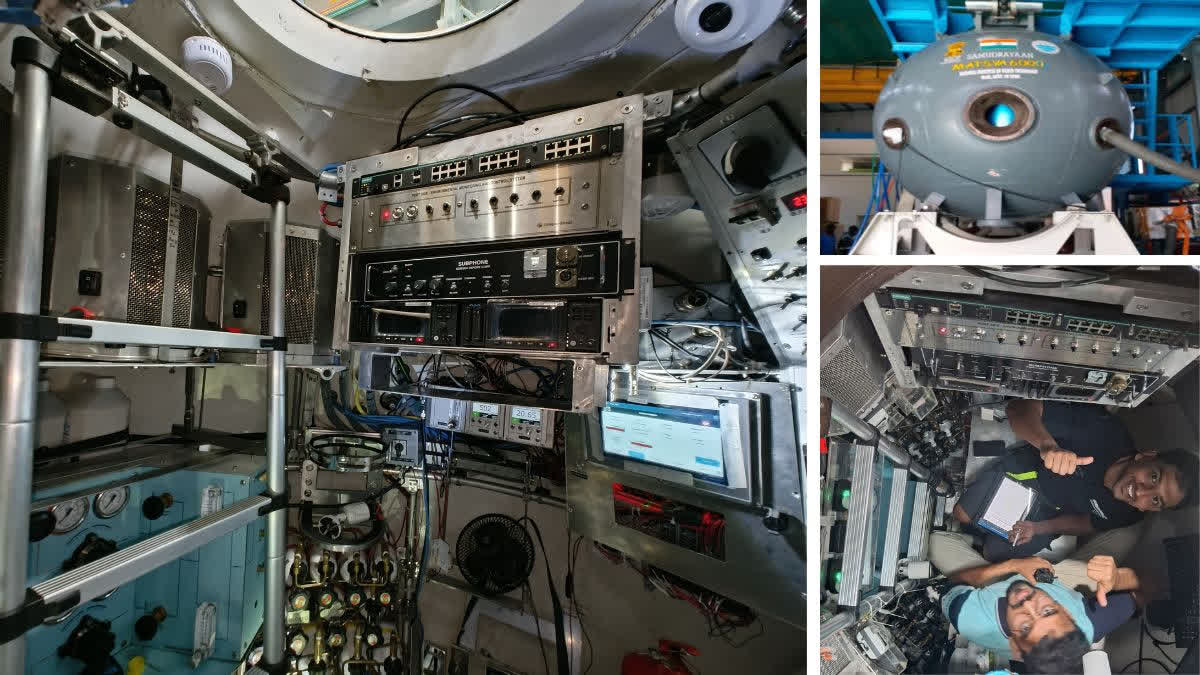Hyderabad:The National Institute of Ocean Technology (NIOT) has achieved a significant milestone in developing the MATSYA 6000, an indigenous human submersible. They successfully completed the Factory Acceptance Test for the Human Support and Safety System (HS3) within the submersible's crew module, which has an internal diameter of 2.1 metres.
The HS3 system is designed to support three people for up to 12 hours under normal conditions and up to 96 hours in emergencies. It includes features like a controlled oxygen injection system, carbon dioxide removal mechanism, sensors, control hardware, fire surveillance, extinguishers, and more.
In a series of posts on X (formerly known as Twitter), the Chennai-based autonomous organisation National Institute of Ocean Technology said that the complete system was custom-designed with the help of the OEM Unique Group and commissioned in the presence of certification agency DNV Marine surveyor.
Back in February 2024, the NIOT showcased the MATSYA 6000 vehicle, developed under India's Samudrayaan project, at the NIOT campus in Pallikaranai, Chennai. The purpose of this vehicle is to conduct deep-sea exploration, particularly for rare minerals.
